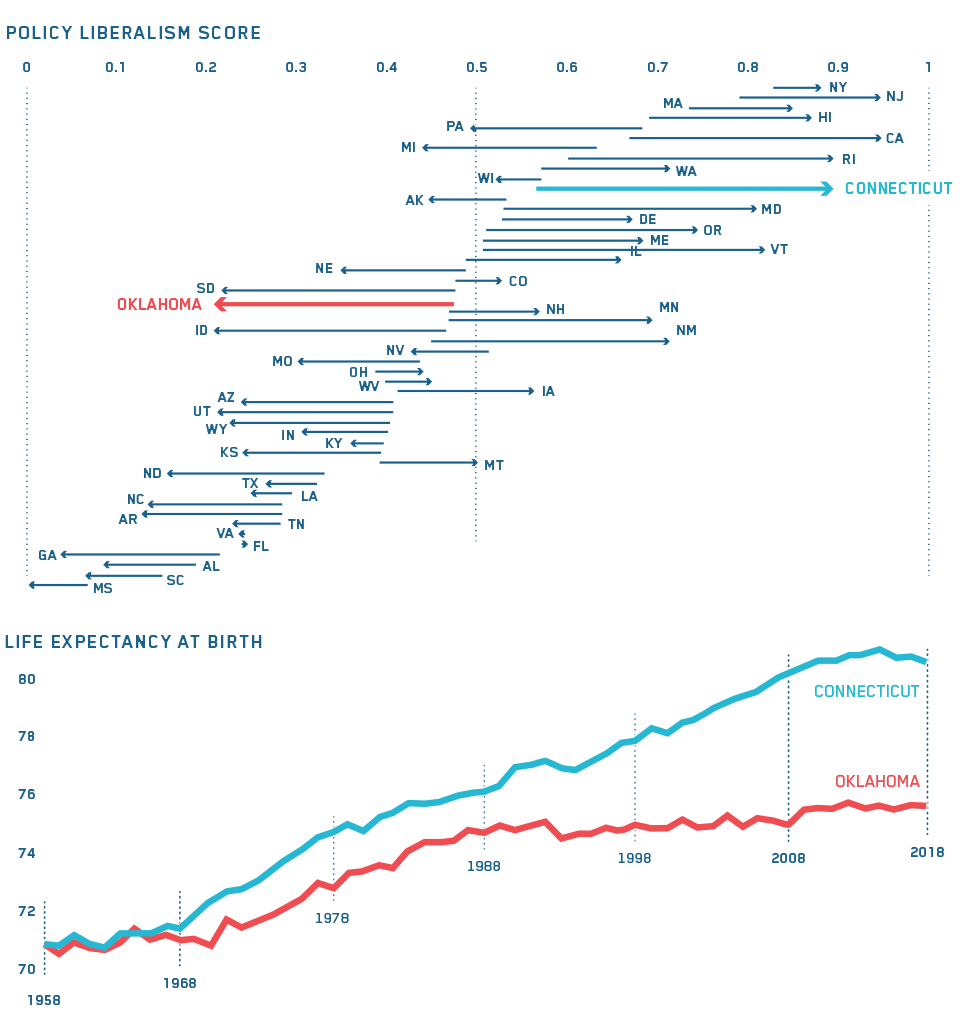A Two-tier Nation
OUTCOMES: A LIFE AND DEATH GAP
The US is already a two-tier nation. Longevity and health studies show that people living in states where politics overrides science suffer from more chronic illness and have a lower life expectancy than those living in states with more progressive, science-driven policies. Blue states like Connecticut have health outcomes on par with European liberal democracies while others, like red state Oklahoma, tend toward outcomes seen in developing nations. The current difference in life expectancy between liberal and conservative states can be as high as seven years—with an average difference of nearly three years. During the pandemic, cumulative death rates from Covid-19 in red states were 30% higher than in blue states. We expect the longevity gap to widen, particularly when the next pandemic strikes.
States that politicize medicine and health policies will eventually face a backlash. Liberal cities within conservative states will attempt to adopt more progressive policies. Pro-choice advocates, for example, will try to circumvent state bans by creating sanctuary cities, funding travel for those seeking abortions and other procedures, and launching ballot initiatives to counter the laws passed in state legislatures. Far from fixing the problem, battles between the federal government, courts, states and cities will create an unstable and complex legal web for providers to navigate. This will add new levels of regulatory burdens to provider workloads and will increase burnout. (For more on provider burnout, see Tomorrow’s Careforce.)
CHANGES IN OVERALL POLICY ORIENTATION,1958–2018, & LIFE EXPECTANCY BY US STATE, 1970–2014
Data: Montez, J. et. al. 2020, ‘US State Policies, Politics, and Life Expectancy,’ The Milbank Quarterly, 04 August
When science becomes politicized and we don’t believe medical research or data because they come from people with different politics, we are in a very bad place. Politics is going to continue to rear its ugly head and impact healthcare, but at some point the common good has to prevail and we have to hold our leaders responsible.
Nancy Nielsen, MD, PhD
Senior Associate Dean for Health Policy, Jacobs School of Medicine and Biomedical Sciences

